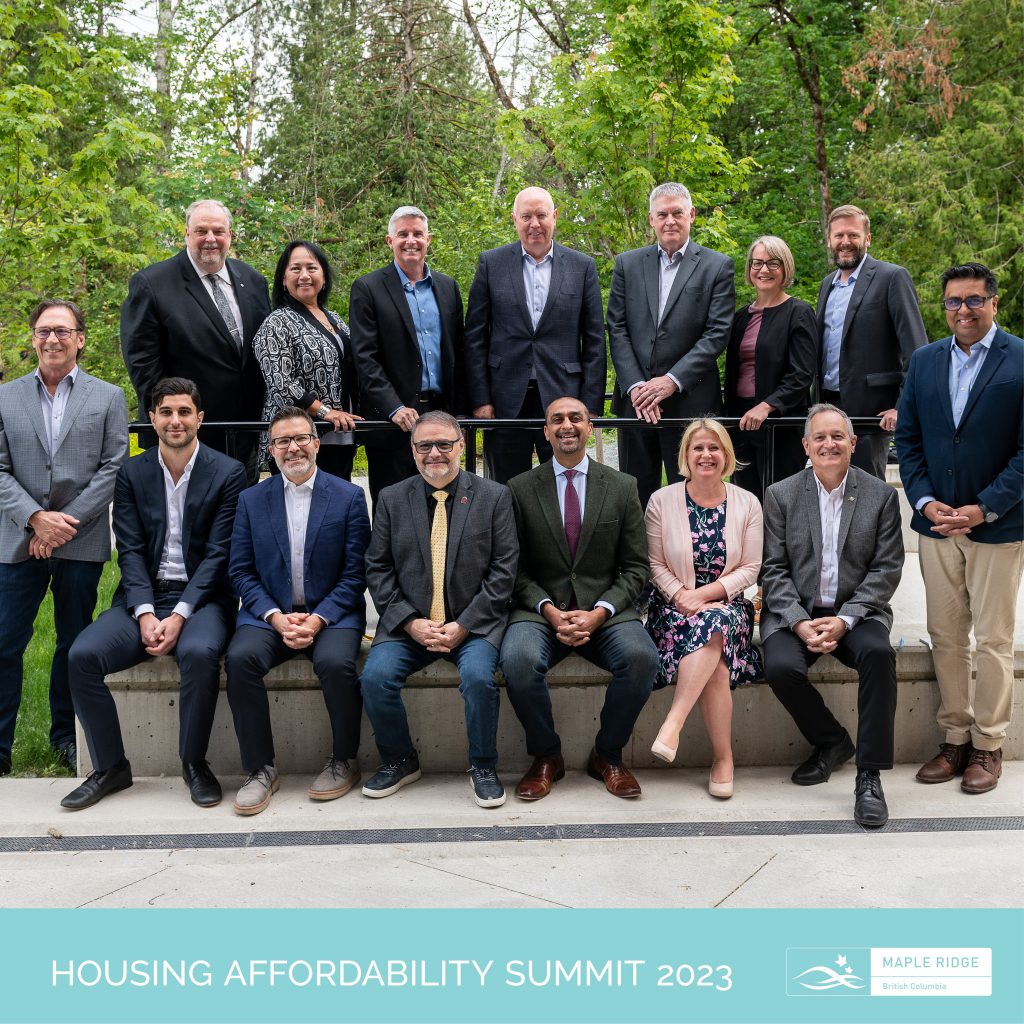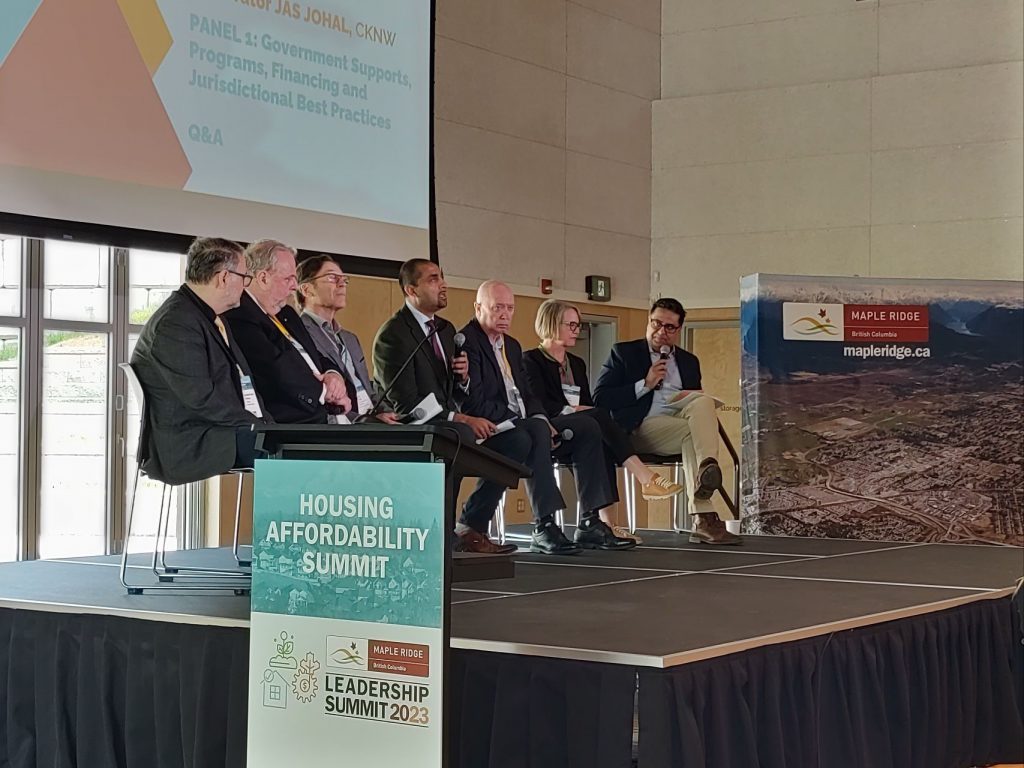Last Wednesday Housing Minister the Honourable Ravi Kahlon announced the first group of ten municipalities that will be dealt with under the terms of the Housing Supply Act previously enacted by the Provincial government. Focused on “building more homes faster” the announcement identified ten municipalities that have consistently fallen short of meeting the housing needs targets that they themselves identified in the Regional Growth Strategies for over 20 years. As of Sunday, an expanded naughty list was released, with a total of 47 municipalities across the province.
The list, compiled using a sophisticated number of metrics, focuses on municipalities with the greatest housing needs and highest projected growths, weighing many factors for differences in size, location, existing, conditions, etc. The comprehensive analysis intends to level the field and measure the performance of individual municipalities in meeting the targets of the Housing Needs studies mandated by the province, with further analysis and review in the plans over the next weeks to determine the thresholds to be established for each of the first ten listed municipalities.
The number of new homes targeted for each municipality will not only be a matter of quantity but will also identify the types of housing required from non-profit, below-market, purpose-built rental, and market sectors, up to and including single-family homes. The province’s preference is to work collaboratively with local governments to agree on the targets and provide assistance and financial support to help determine and action the means to deliver the homes and services needed to begin to balance the supply versus the demand for homes.
The reaction from the first ten municipalities is mixed with mayors Megan Lahti of Port Moody, and Ken Sim of Vancouver expressing their desire to work with the province and move forward with the provision of new homes and the “right kind” of homes. The mayor of West Vancouver Mark Sager is holding judgment but concurs with mayor Mike Little of the District of North Vancouver (DNV) that transportation infrastructure and connectivity to and from the north shore is an inhibiting factor and that DNV will not advance the provision of new homes without addressing this issue.
Both West Vancouver and DNV have fallen far short of meeting any growth targets for many, many years and have actively enacted exclusionary zoning regulations that stand in the way of supporting any kind of growth despite huge demand that has driven land and home prices beyond the reach of most people. Mayor Little suggests the delays in approvals that are bottlenecking delivery of housing in DNV lie with the province and that is quite a stretch given the experience of members working in DNV. The province, in response to numerous studies and recommendations from industry stakeholders including HAVAN, is making immediate and effective changes to clear provincial backlogs and smooth the path for new approvals and is not embracing the status quo.
By contrast, Mayors Lahti and Sim are expressing their desire to work together and both of their municipalities are making efforts to change their posture on the delivery of housing and streamlining approvals and permits. Port Moody council, which changed dramatically after municipal elections last fall, has adopted a much more open-minded position and is moving forward with the long-delayed Coronation Park proposal and incorporating elements that will bring more affordable homes, rentals, and market housing into the community and adjacent to the Skytrain and hubs in that city.
Vancouver is also making progress in increasing their capacity for delivery of homes, and approvals albeit painfully slow. The change in the position there also stems from the election last fall when the ABC majority was elected to council and since coming to office have consistently made decisions to move the needle and in a few instances overriding staff recommendations such as endorsing triage and prioritization of applications to include all housing types based on a maximum number of units that can be delivered and which are closest to “shovel ready” – this was augmenting the staff report that limited the triage to below market rental, and subsidized homes.
The nature of the Housing Supply Act will empower the province to step in if the noted local governments continue to fall short of enabling and approving the creation of new homes as expeditiously as possible, and the Act also provides the opportunity for the province to support cities that are making efforts to deliver on meeting the proscribed targets.
Doubling down on Commitments …
Last Tuesday Maple Ridge hosted a Housing Affordability Summit, and I was invited to participate in a panel discussion with Housing Minister Ravi Kahlon, Mayor Mike Hurley of Burnaby, Jill Atkey, CEO BC Non-Profit Housing, Rick Illich, CEO of Townline Homes HAVAN member and UDI Chair, and our host Mayor Dan Ruimy of Maple Ridge. There was a second panel with Thom Armstrong, CEO, Co-op Housing Federation of BC, Jonathan Coté, Deputy GM of Regional Planning and Housing Development, Metro Vancouver, Chad Margolus, Director of Acquisitions, Morningstar/Polygon Homes, Shawn Bouchard, COO, Lorval Developments, both HAVAN members, and Margaret Pfoh, CEO, Aboriginal Housing Management Association. Both panels were moderated by Jas Johal of CKNW.

Maple Ridge Housing Affordability Summit Panel Speakers
Compliments and thanks to Mayor Ruimy and the team for convening such a diverse and prominent group to express our observations and insights on addressing affordability. Minister Kahlon, a day in advance of the “naughty list” announcement, reiterated and “doubled down” on much of what we have been hearing over the last few months including the need to remove politics from the issues – we are in a crisis, and it is all hands on deck. Mayors Ruimy and Hurley, whose cities were not named, concurred with the need for decisive and immediate action, and Mayor Hurley highlighted his Mayor’s Task Force on Housing which among other things approved the opportunity for laneway homes.
Mayor Ruimy noted the urgent need to accommodate the current and projected population growth in Maple Ridge and the need to hold off on further sprawl and look to maximize opportunities within the urban boundary and within reach of existing infrastructure. Maple Ridge has undertaken an extensive review of their operations with the building department and now with planning and engineering to break up entrenched processes, procedures, and biases to create an environment that fosters approving applications that serve to fill their housing needs and provide a positive customer service experience for our sector.
All panelists were fully cognizant of the need for more supply and there were a number of ideas presented that could serve to contribute to meeting the housing crisis. Thom Armstrong championed the cause for more co-op, Margaret Pfoh stated the imperative to have First Nations at the table, and Rick Illich, Jill Atkey, and myself all spoke to the urgent need to streamline approvals to clear the way to build more non-profit, rental, and market housing. Shawn Bouchard presented ideas on expediting the provision of purpose-built housing of all stripes and we will be bringing these to the attention of CHBA National and Provincial GR teams.

Panel 1: Government Supports, Programs, Financial and Jurisdictional Best Practices
One issue that I raised and was reinforced by others was the efforts being made by leadership both provincially and municipally are commendable and long-awaited, but the direction must be passed down to all players and stakeholders that now it is time to adopt a culture of “Yes”. To make any of the initiatives being implemented successful, all players involved must work together to achieve the common goals we all wish to achieve, and the effort must be made to break down “silos”, enhance communications, and actively find the means to make things work and balance the needs of all stakeholders.
This is a housing crisis, and everyone needs to do their part – housing, and climate issues need to be addressed with the same sense of urgency which we bring to other catastrophic events such as wildfire emergencies, floods, and national conflicts, where all the community comes together for the common good. We must comprehensively change the status quo and affect immediate remedial actions because even on our best days this effort is going to take years to yield significant and positive results. HAVAN is grateful for the opportunity to contribute to the effort and is always available to work cooperatively with all jurisdictions to help “move the needle.”
HAVAN continues to work with CHBA BC and CHBA to advocate for all levels of government to work together to address the challenges of the housing industry including zoning restrictions, density limits, and NIMBYism.
Looking to stay up-to-date on Metro Vancouver’s residential housing industry? Sign up for Ron’s weekly Monday Morning Briefing and other HAVAN emails here.
Quick bites …
- The province is moving forward to establish a province-wide approval to allow for the provision of 4 – 6 homes on any given single-family lot. Victoria has already advanced this, and Vancouver is also in the process of introducing this inclusionary zoning. There are many perspectives being presented on this matter and the experiences of other jurisdictions across the globe are being analyzed, reviewed, and commented on. The initiative is by no means “the silver bullet” – it is just one more tool in the box, but the fact is that single-family lots constitute 70% or more of all land areas in urban centers across North America. In this article, Minister Ravi Kahlon pushes back on detractors and the suggestion that speculative land values will be increased and affordability not enhanced.
- Vancouver council last week directed staff to adopt a triage measure to expedite approvals passing through the city. The Daily Hive outlines the council’s direction highlighting the notion of prioritizing applications that can deliver the most, the fastest. HAVAN was asked to comment on the original proposal that had staff directed to select and prioritize “shovel-ready” below-market rental and non-profit proposals. Our concern was that all other housing applications would be left behind creating a larger gap in delivery and that staff may not be qualified to make those judgments. This ruling addresses the issue of being too selective, but the question remains: who is the gatekeeper, and who determines “shovel ready”?
- Comments made recently about Vancouver staff only working at the City Hall two days a week and the perceived decline in productivity that may accompany unsupervised work away from the office is in question. While this may or may not be an issue as some organizations adopted remote work during C19 and continue with a hybrid model, productivity is likely more affected by conflicting and overlapping policies and direction and programs such as the now curtailed Policy Enquiry Process that entertained “blue sky” proposals and diverted staff resources. Communications with Vancouver staff suggest a report on staffing, office attendance, and productivity will be presented to the council on June 13 which should present the facts and offset speculation on this matter. Staffing issues and return-to-work issues are not unique to Vancouver and may be affecting other municipalities as well.
- Sometimes we ‘pine’ for the old days and this piece in the Vancouver Sun provides a snapshot of the “Wonders of Vancouver” circa 1888. Quite different from today for sure and emphasizes that the only real constant in life is Change!
- Mental Health is an important topic for everyone and one that impacts your company’s bottom line. Sign up for HAVAN’s morning session ‘Let’s Talk Mental Health in the Construction Industry‘ and take this opportunity to empower yourself and strengthen your company’s role in supporting the health and wellbeing of your employees. Scheduled on June 13, from 8 am – 11:30 am, keynote speaker, Corey Hirsch, former NHL Canucks player, together with a line-up of engaging speakers will have a real conversation about mental health in the construction industry, its commonality, understanding perspectives, and responsibilities for both employers and employees, with resources shared to ensure members have the tools and strategies to support mental wellness in the workplace. Sign up here.










